By Deanna Day, Washington State University, and Barbara A. Ward, University of New Orleans
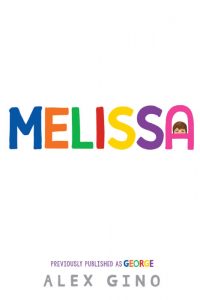 As books in libraries and parts of school curriculum suddenly become hot button topics, it seems important to address censorship and book banning. The next four columns of WOW Currents will seek to make sense of this complicated, increasingly controversial issue. The first week we will discuss supporting children’s rights to read and intellectual freedom. The following week we will advocate for selecting books carefully versus banning or “stealth censorship.” In the third week’s column we will share suggestions and ideas for teachers in supporting the rights of youngsters to read. The fourth week we conclude our exploration of this important literacy issue by looking at how some communities have begun pushing back against the current waves of book challenges and banning.
As books in libraries and parts of school curriculum suddenly become hot button topics, it seems important to address censorship and book banning. The next four columns of WOW Currents will seek to make sense of this complicated, increasingly controversial issue. The first week we will discuss supporting children’s rights to read and intellectual freedom. The following week we will advocate for selecting books carefully versus banning or “stealth censorship.” In the third week’s column we will share suggestions and ideas for teachers in supporting the rights of youngsters to read. The fourth week we conclude our exploration of this important literacy issue by looking at how some communities have begun pushing back against the current waves of book challenges and banning.
Challenges to books or reading materials aren’t particularly new since literature offers different perspectives on life, something sure to trouble or offend some readers. But recently there’s been an explosion in the number of books being challenged. During the past two years it seems as though every week there is a news article or report that yet another book has been challenged or banned in a library or school district. Although in the past various literary works, movies, and even artwork have been deemed controversial or problematic due to language, subject matter or perspective, drawing the ire of various individuals or groups, the number of book challenges has skyrocketed. Typically, around 250 to 300 books are challenged during a year, according to the American Library Association’s Office of Intellectual Freedom, which keeps data on these challenges. For instance, there were 275 book challenges during 2015. The number was about the same during 2020, which recorded 273 challenged titles. The trend shifted during the subsequent years as individuals and groups began to challenge large numbers of books. During the first half of the 2022/2023 school year, PEN America found that there were 1,477 instances of individual books challenged, involving 874 book titles. This represents a 28% increase compared to the number of challenges noted during the first six months of 2022. Young readers suffer the most when books are challenged. A challenge is any action to restrict or remove a book or materials, based on objections from a person or group. A book ban is the removal of those materials.
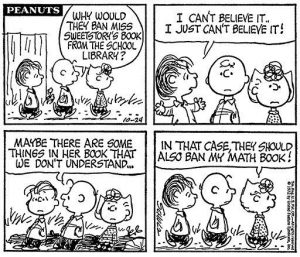 Author and literary expert Margaret Mooney (2004) found that when children and teens read a book, it encourages them to think and explore their lives, cultures, and communities. Their reading helps them build connections and empathy toward others while also challenging world views. Books transport readers to new worlds and help them understand themselves better. The opportunity to read any book empowers children and teens—opening their minds and inspiring them. When we think about what young people gain from books, it is really disturbing to consider that 1,477 books were challenged in a six-month span. Theoretically, this means that youngsters no longer have access to these titles or the possibility of exploring multiple perspectives, thus diminishing their rights to read whatever they wish and develop their own opinions.
Author and literary expert Margaret Mooney (2004) found that when children and teens read a book, it encourages them to think and explore their lives, cultures, and communities. Their reading helps them build connections and empathy toward others while also challenging world views. Books transport readers to new worlds and help them understand themselves better. The opportunity to read any book empowers children and teens—opening their minds and inspiring them. When we think about what young people gain from books, it is really disturbing to consider that 1,477 books were challenged in a six-month span. Theoretically, this means that youngsters no longer have access to these titles or the possibility of exploring multiple perspectives, thus diminishing their rights to read whatever they wish and develop their own opinions.
Some individuals or parent-led groups worry that exposure to certain books or ideas may produce particular effects in their children. They also fear that children may be indoctrinated or consider a lifestyle that they disagree with (Liou & Cutler, 2023). Although parents have the right to choose what books their own child(ren) read, they do not have the right to decide what books other children or teens read. These groups and parents pressure a school district to remove the books without following their policies. Book challenges or bans encourage children to believe that ideas, specifically books, are either good or bad; acceptable or unacceptable. Children could have knowledge gaps, believe negative stereotypes and become closed-minded when certain books are not available to them (Scales, 2021). A lack of knowledge could leave children unprepared to face complicated challenges in our world. In addition, book-restricting could impact students’ opportunities to explore their lives, their histories, and their communities (Liou & Cutler, 2023). Jones (2020) found that when students’ lived experiences are erased from the books they read, it could cause racial trauma. Censorship of reading materials has a chilling effect on free discourse, teaching young readers that a few loud voices can disrupt the rights for all.
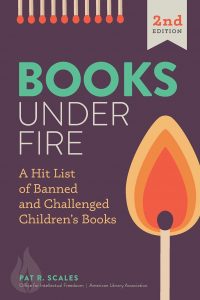 Possibly most troubling of all about the recent attacks on books for children and teens is the content or subject matter being challenged. The top five reasons most books were challenged according to the First Amendment Museum in 2022 were sexual content (92.5% of books on the list), offensive language (61.5%), unsuited to age group (49%), religious viewpoint (26%) and LGBTQ+ content (23.5%). PEN America found that of the 1,145 books challenged in the last nine months of 2022—467 titles (41%) included characters who were people of color, 247 titles (22%) addressed issues of race and racism, and 379 titles (33%) contained LGBTQ+ themes or featured LGBTQIA+ characters.
Possibly most troubling of all about the recent attacks on books for children and teens is the content or subject matter being challenged. The top five reasons most books were challenged according to the First Amendment Museum in 2022 were sexual content (92.5% of books on the list), offensive language (61.5%), unsuited to age group (49%), religious viewpoint (26%) and LGBTQ+ content (23.5%). PEN America found that of the 1,145 books challenged in the last nine months of 2022—467 titles (41%) included characters who were people of color, 247 titles (22%) addressed issues of race and racism, and 379 titles (33%) contained LGBTQ+ themes or featured LGBTQIA+ characters.
Stunned by these numbers and confused as to what might be at the heart of these challenges, we began asking ourselves questions, wondering what exactly those labels mean. What are the implications or difficulties of these labels? What are the counter arguments for these labels? All children mature at different rates and bring different life experiences to their reading, so one person’s definition of “unsuited to age group” or “sexual content” might be different from another person’s viewpoint. For example, the label “unsuited for age group” is subjective and vague, and it would be challenging to come to an agreement on what is suited or unsuited for a particular age group since children develop at different rates. Furthermore, books that are labeled for a certain age group could easily be confused when also considering the reading levels, subject or content and appropriateness. Determining books that are suitable is subjective and a faulty premise for challenging a book. Already, in 2023, 61% of the books this year have been challenged because of what challengers consider to be “offensive language.” But what exactly is offensive language? Is it a so-called curse word or “bad” word such as shit or damn or an anatomically-correct term such as penis or scrotum or breast? Children and teens often hear offensive language at home, on television and online, through friends, at school and in the community. It is nearly impossible to avoid exposure to what some might consider to be offensive or inappropriate language. Plus, depriving children of a book because it has offensive language might cause them to not grow and learn. It is best to have a conversation and discussion about the offensive words with children and teens. Furthermore, focusing on the offensive terms in a book does an injustice to the rest of the book because it most likely contains important lessons and/or the language might be appropriate for the characters or time period.
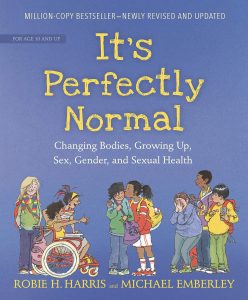 It’s possible some of these well-meaning parents and citizens fail to understand that removing a book from the library or curriculum violates children’s and teens’ rights to read, a provision granted under the First Amendment of the United States Constitution. This Amendment allows individuals to speak, publish, read, and view what they wish. This means that ideas and information such as books, magazines, newspapers, art, film, music or curriculum should not be censored. In addition, after WWII the United Nations declared freedom of expression and the Declaration of Human Rights in Article 18 where everyone has the right to freedom of thought, conscience, and religion. In Article 19 the UN declared everyone has the right to freedom of opinion and expression. As readers, teachers and citizens, we need to continue to fight for the freedom of expression as a fundamental human right because this allows for the development of a healthy society and world.
It’s possible some of these well-meaning parents and citizens fail to understand that removing a book from the library or curriculum violates children’s and teens’ rights to read, a provision granted under the First Amendment of the United States Constitution. This Amendment allows individuals to speak, publish, read, and view what they wish. This means that ideas and information such as books, magazines, newspapers, art, film, music or curriculum should not be censored. In addition, after WWII the United Nations declared freedom of expression and the Declaration of Human Rights in Article 18 where everyone has the right to freedom of thought, conscience, and religion. In Article 19 the UN declared everyone has the right to freedom of opinion and expression. As readers, teachers and citizens, we need to continue to fight for the freedom of expression as a fundamental human right because this allows for the development of a healthy society and world.
The American Library Association (ALA) and the National Council of Teachers of English (NCTE) have Position Statements on a student’s rights to read. All children and teens have the right to read materials, educational experiences that promote open inquiry, critical thinking, diversity in thought and expression, and respect for others. Other organizations that promote the right to read include International Literacy Association and the National Coalition Against Censorship and Library of Congress Center for the Book. Both NCTE and ALA have important documents, literature, advice and assistance for teachers, librarians and community members. Perhaps these would-be censors have forgotten that intellectual freedom and the free exchange of ideas are two of the tenets of a democracy. It’s also possible that certain political groups or politicians hope to intimidate librarians and educators while gaining attention for their efforts and polarizing their electorate.
In October 2022 the House of Representatives and Senate took note of this trend in attacking books, passing H.R.9056 and S.5064—the Right to Read Act that affirms students’ freedom to choose reading materials, and their right to access linguistically and developmentally appropriate resources.
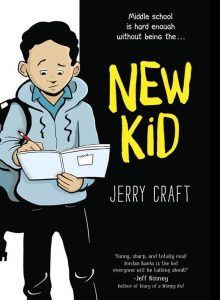 To help provide some context on the attack of books, we close this post with some intermediate titles that were challenged in 2022. Next week we will be advocating for selecting books versus banning.
To help provide some context on the attack of books, we close this post with some intermediate titles that were challenged in 2022. Next week we will be advocating for selecting books versus banning.
It’s Perfectly Normal: Changing Bodies, Growing Up, Sex and Sexual Health (Harris, 2021) contains detailed factual information and drawings about our bodies, health and sex. This book covers topics such as puberty, ovulation, anatomy, conception, pregnancy and disease prevention as well as sexual abuse, sexual orientation, adoption, abortion laws, attraction, masturbation, and more. It’s Perfectly Normal been targeted because it is unsuited to age group and contains sexual content.
Melissa (originally entitled George) (Gino, 2015) portrays a trans girl who wants to play the role of Charlotte in her class’s production of the children’s story Charlotte’s Web. Melissa’s teacher does not acknowledge her as a girl and even when she tries to talk to her mother about how she feels she is ignored. Melissa’s best friend encourages her to be herself. This title has been challenged across the United States because of the LGBTQ+ content.
New Kid (Craft, 2019) is a graphic novel about a seventh grader who goes to a private school where there is little diversity and he is one of the few who is Black. Jordan doesn’t feel like he fits in, struggling to live in two different worlds. He draws cartoons about his life to help him stay true to himself. This 2020 Newbery winner has been challenged because it includes characters of color and discusses race and racism.
References
Jones, S. P. (2020). Ending curriculum violence. Teaching Tolerance, 64, 47-50.
Liou, D., & Cutler, K. D. (2023). A framework for resisting book bans. Educational Leadership, 80(5), https://www.ascd.org/el/articles/a-framework-for-resisting-book-bans
Margaret, M. E. (2004). A Books is a Present: Selecting text for Intentional Teaching. Richard C Owen Publishing.
Scales, P. (2021). Books Under Fire: A Hit List of Banned and Challenged Children’s Books. ALA Editions.
WOW Currents is a space to talk about forward-thinking trends in global children’s and adolescent literature and how we use that literature with students. “Currents” is a play on words for trends and timeliness and the way we talk about social media. We encourage you to participate by leaving comments and sharing this post with your peers. To view our complete offerings of WOW Currents, please visit its archival stream.

The Right to Read Act of 2022 did not make it through Congress. Representative Raúl Grijalva (D-AZ) and Senator Jack Reed (D-RI) reintroduced these bills as The Right to Read Act of 2023.
The House bill H.R.2889 currently has 32 co-sponsors: https://www.congress.gov/bill/118th-congress/house-bill/2889/cosponsors?s=1&r=2
The Senate bill S.1307 has just one co-sponsor so far: https://www.congress.gov/bill/118th-congress/senate-bill/1307/cosponsors
If you are concerned about students’ First Amendment rights and want to make sure they have the support of a state-certified school librarian and classroom teachers whose right to ensure students’ intellectual freedom is not compromised, please encourage your representatives in Congress to sign on both of these bills.